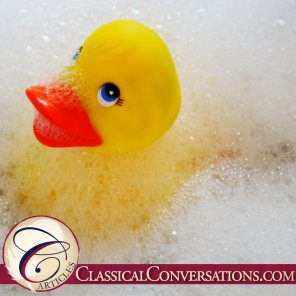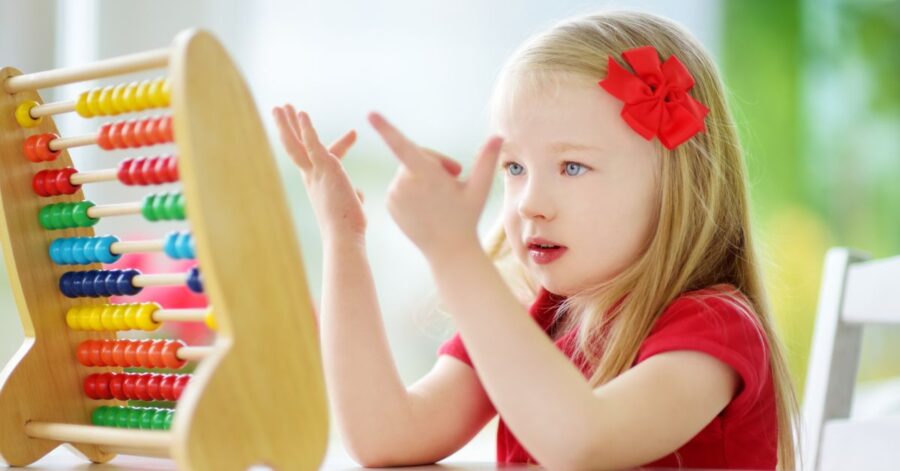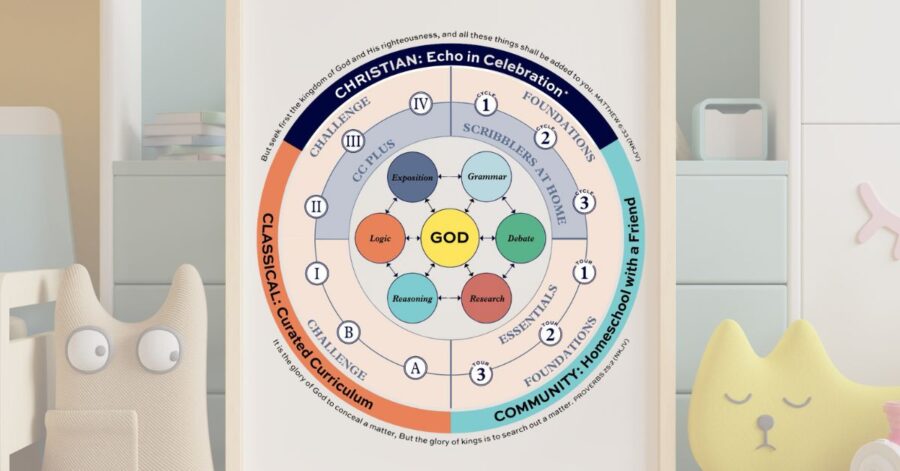Our two-year-old boy old loves his bath. Many well-meaning relatives wanted to get him some bath toys for his birthday and for Christmas. For some reason, I balked at the idea. It took me a while, but with God’s help, I was able to figure out why I had such a violent reaction to that idea. Two reasons: we do not need more stuff and the bath itself is a toy.
We do not need more stuff! Particularly, we do not need things that have one function only. Things that you look at but do not interact with. Things that do all the work for you. Things that take up time and energy to keep up with but do not point us toward God and truths about His world. Books offer endless possibilities; bath toys, however, do not.
Our boy likes to take a cup and pour out the water. He likes to watch his one toy boat float and figure out how to sink it. He likes to use his wash cloth and figure out why the water wrings out of it. He likes to figure out how to displace the water with his legs and how to make waves with his feet. God gave us this whole world full of wonders and we do not need to use something man-made to make us happy!
We and our children do not need things with bells and whistles to entertain us. We need to spend less time with our man-made things and more with God and His Creation. Why would we offer a substitute for the beauty of bathwater?
Classical education turns our focus from unnecessary toys to the real wonders and from those wonders to their Creator. It is at once minimalistic and expansive. Teaching my children with a stick in the sand liberates me from having to try to do something spectacular and difficult that may in fact obscure discovery. Have you ever done a project with your child that fails in your objective to teach them about God and His world? You get so into the project and the glue, scissors, and paper that you realize after the fact that your child knows no more about the subject than before. We do not need to do anything fancy to teach our children. In fact, the bells, whistles, and bath toys can shroud the beauty of the subject. We need to: model enthusiasm; know somewhat where we want to go with the lesson; and guide the students gently. If the lesson does not go the way you plan, but your student still learns about God and His world, you have succeeded.
In Classical Conversations, we teach students how to think and learn. That in itself has extreme function and versatility. We are teaching kids that the natural world is amazing and should be marveled at when we have them doing science experiments, science fair, and science reports. The work is hard and challenging, but in the end, students are pointed towards God and truth. We should not let all the bath toys and extra lesson plans in the world get in the way of that.




